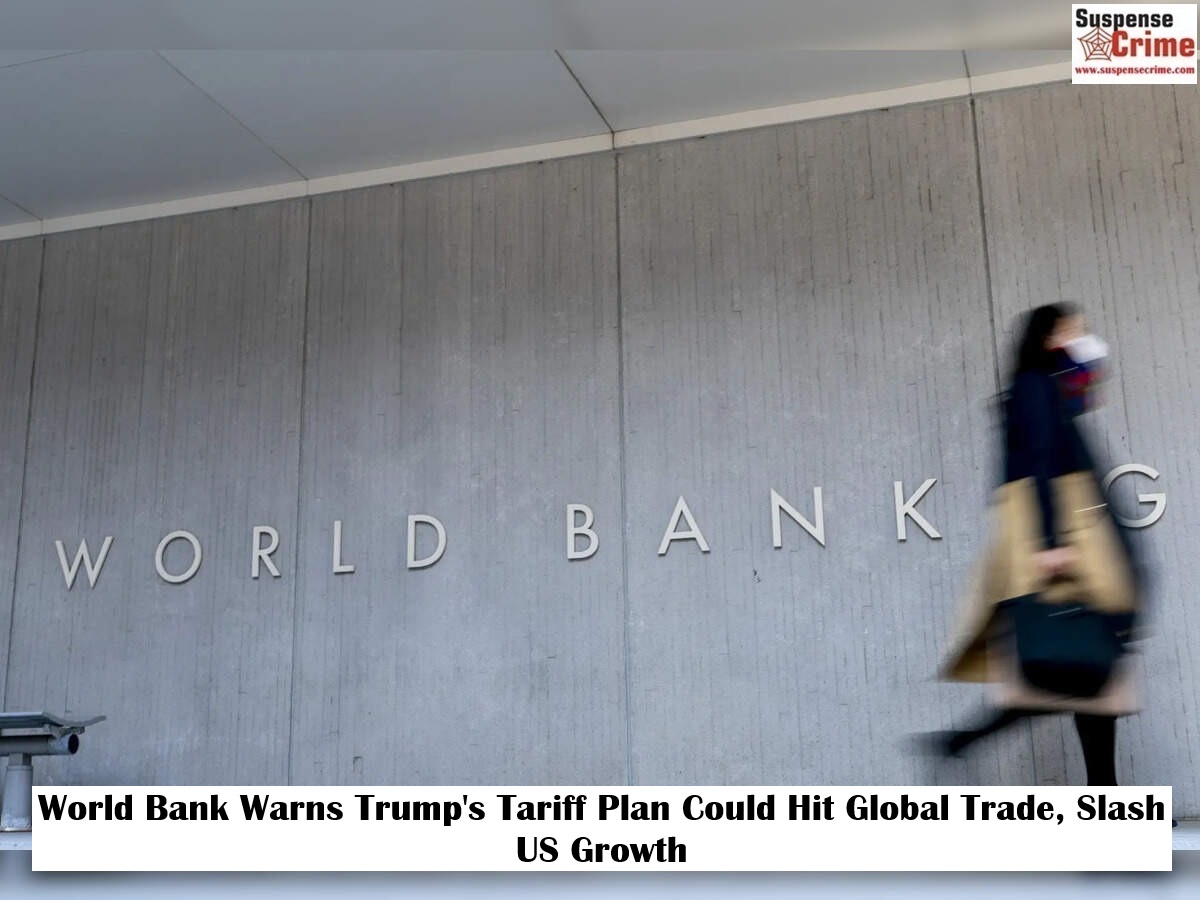
Suspense crime, Digital Desk : The World Bank has issued a grave warning about the fragility of the global economy, identifying escalating trade restrictions and geopolitical tensions as the most significant threats to growth. In its latest "Global Economic Prospects" report, the institution took the unusual step of modeling the potential impact of tariff proposals by former US President Donald Trump, concluding they would severely damage both the US and global economies.
While the World Bank forecasts that global growth will stabilize at 2.6% in 2024, it cautions that this rate is weak by historical standards and highly vulnerable to shocks.
The Threat of a New Trade War
The report singles out the risk of rising protectionism, with a clear focus on the potential economic fallout from a second Trump presidency. Should Trump implement his proposed policies—a universal 10% tariff on all imports and a staggering 60% tariff on Chinese goods—the consequences would be far-reaching.
According to the World Bank's analysis, such moves would:
Slash US Growth: The US economy's growth rate could be cut by up to half a percentage point.
Fuel Inflation: The tariffs would significantly increase the cost of imported goods for American consumers and businesses, fueling inflation.
Disrupt Global Supply Chains: A new trade war would create chaos for global supply chains that are still recovering from the pandemic.
Provoke Retaliation: Other countries would almost certainly respond with retaliatory tariffs on US goods, escalating the conflict and harming American exporters.
The report stresses that a widespread "tit-for-tat" escalation of trade barriers could trigger a sharp downturn in global trade and economic activity.
Poorest Nations at Greatest Risk
While the world's largest economies would suffer, the impact would be even more devastating for developing nations. The World Bank highlights that the world's poorest countries are already facing a "historic reversal" in progress. One in four developing nations is projected to remain poorer than it was on the eve of the COVID-19 pandemic.
These countries are already struggling with crippling debt levels, the lingering effects of the pandemic, and the growing impact of climate change. A global trade slowdown would further stifle their growth, making it nearly impossible to reduce poverty and invest in critical services.
A Precarious Global Outlook
Beyond the threat of tariffs, the World Bank also points to other significant risks, including the potential for wider conflict in the Middle East and the financial stress caused by sustained high interest rates across the globe.
The report's overall message is one of extreme caution. While the global economy has avoided a recession, it remains in a precarious state. The policy choices made by major economies in the coming months, particularly on trade, will be critical in determining whether the world heads toward a path of stable growth or a new period of economic turmoil.
Read More: The Unstoppable Surge Why Donald Trump Feels Bulletproof Right Now

 Share
Share



